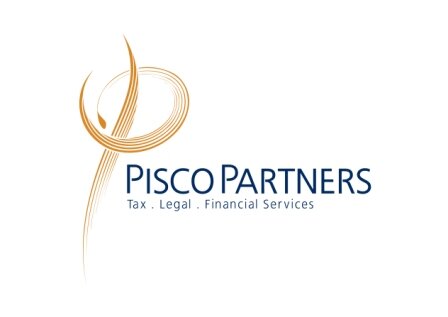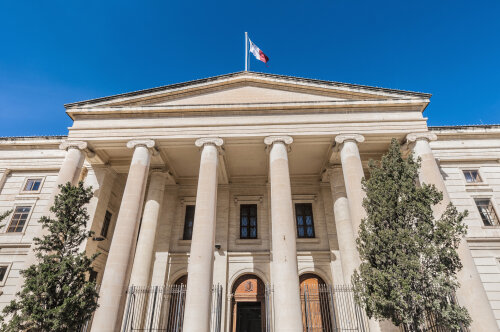Best Due Diligence Lawyers in Malta
Share your needs with us, get contacted by law firms.
Free. Takes 2 min.
Or refine your search by selecting a city:
List of the best lawyers in Malta
About Due Diligence Law in Malta
Due diligence in Malta is an essential legal process, particularly in business transactions, mergers and acquisitions, and financial dealings. It involves a comprehensive appraisal of a business or organization to establish its assets, liabilities, and commercial potential. The goal is to ensure the accuracy and completeness of the financial, legal, and operational aspects of the target entity. In Malta, due diligence is critical due to the island's strategic position in the EU, its robust financial services industry, and its gateway function to the wider European market. The process often entails verifying compliance with local laws and regulations, especially those related to anti-money laundering (AML) and counter-terrorist financing (CTF).
Why You May Need a Lawyer
There are several situations where legal expertise in due diligence may be necessary. For instance, if you are considering investing in or acquiring a Maltese company, understanding the financial health and potential liabilities of that company is crucial. Additionally, businesses looking to expand their operations in Malta may need a lawyer to conduct thorough due diligence to avoid any non-compliance with local laws. Conducting due diligence for financial institutions or during property transactions is also a complex process best managed with legal guidance to ensure all regulatory requirements are met and potential risks are identified and mitigated early.
Local Laws Overview
In Malta, due diligence procedures are often influenced by the Prevention of Money Laundering and Funding of Terrorism Regulations (PMLFTR), as well as guidance notes issued by the Financial Intelligence Analysis Unit (FIAU). Businesses, particularly those in financial services, must adhere strictly to these regulations, which require detailed verification of identities and beneficial ownership, risk assessment procedures, and ongoing monitoring. Additionally, GDPR compliances are crucial for handling personal data during the due diligence process. Other relevant laws include the Companies Act and the Investment Services Act, which outline further obligations during mergers, acquisitions, and financial transactions.
Frequently Asked Questions
What is due diligence?
Due diligence is a thorough investigation or audit of a potential investment or product to confirm all facts, such as reviewing financial records, recent performance, and legal compliance.
When is due diligence necessary?
Due diligence is necessary during mergers and acquisitions, real estate transactions, loan assessments, and when entering into new business partnerships.
Are there specific due diligence requirements for financial services in Malta?
Yes, financial services entities in Malta must comply with comprehensive regulatory frameworks, including strong anti-money laundering measures, under the supervision of the Financial Intelligence Analysis Unit (FIAU).
What are the primary risks assessed during due diligence?
Key risks include financial risks, legal risks, compliance risks, and operational risks that could impact the potential investment or transaction.
Can due diligence be done internally, or must a lawyer be involved?
While some companies conduct internal due diligence, involving a lawyer ensures thoroughness, compliance with local regulations, and mitigates legal and financial risks.
What documents are typically reviewed during due diligence?
Documents reviewed often include financial statements, contracts, legal agreements, corporate records, and compliance reports.
How long does the due diligence process take?
The timeframe for due diligence can vary widely, but typically it takes from several weeks to several months, depending on the complexity of the transaction.
What happens if due diligence uncovers issues?
If issues are uncovered, parties may renegotiate terms, adjust the valuation, or in some cases, choose not to proceed with the transaction.
What is enhanced due diligence?
Enhanced due diligence involves additional investigation steps for high-risk customers or transactions to further assess potential risks and ensure compliance.
Is due diligence a legal requirement in Malta?
In specific sectors, especially financial services, due diligence is a legal requirement to comply with anti-money laundering and counter-terrorist financing laws.
Additional Resources
For further support on due diligence in Malta, you may consult the Financial Intelligence Analysis Unit (FIAU), the Malta Financial Services Authority (MFSA), and local law firms specializing in corporate law. Industry-specific guidelines from associations and resources from international bodies related to compliance and corporate governance may also be beneficial.
Next Steps
If legal assistance in due diligence is needed, start by identifying a reputable lawyer or legal firm specializing in corporate and financial law in Malta. Prepare relevant documentation and questions in advance to discuss with them. Ensure the chosen legal advisor has experience with the specific type of transaction you're involved in and ask for an outline of their approach to the due diligence process, including timelines and expected outcomes.
Lawzana helps you find the best lawyers and law firms in Malta through a curated and pre-screened list of qualified legal professionals. Our platform offers rankings and detailed profiles of attorneys and law firms, allowing you to compare based on practice areas, including Due Diligence, experience, and client feedback.
Each profile includes a description of the firm's areas of practice, client reviews, team members and partners, year of establishment, spoken languages, office locations, contact information, social media presence, and any published articles or resources. Most firms on our platform speak English and are experienced in both local and international legal matters.
Get a quote from top-rated law firms in Malta — quickly, securely, and without unnecessary hassle.
Disclaimer:
The information provided on this page is for general informational purposes only and does not constitute legal advice. While we strive to ensure the accuracy and relevance of the content, legal information may change over time, and interpretations of the law can vary. You should always consult with a qualified legal professional for advice specific to your situation.
We disclaim all liability for actions taken or not taken based on the content of this page. If you believe any information is incorrect or outdated, please contact us, and we will review and update it where appropriate.
Browse due diligence law firms by city in Malta
Refine your search by selecting a city.















